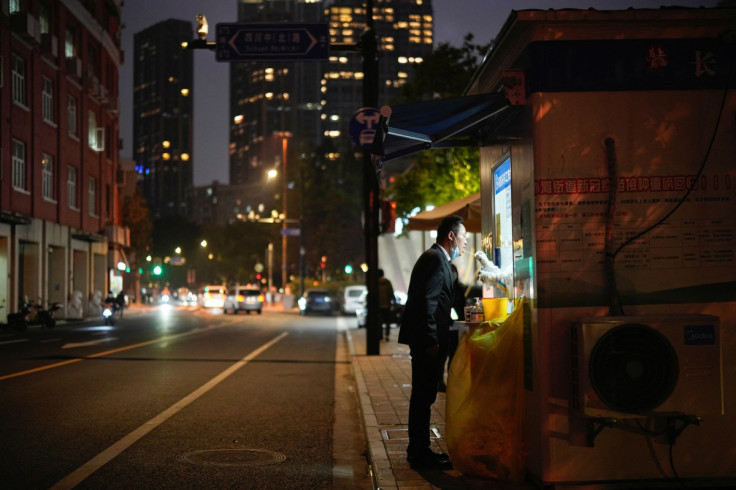China's COVID Curbs Intensify As Cases Surge To Highest Since Shanghai Lockdown

Chinese authorities stepped up COVID lockdowns and other curbs to contain outbreaks as the number of cases soared to its highest since millions of people were confined to their homes this year, with Beijing and Zhengzhou seeing record tallies.
Authorities reported 10,535 new domestically transmitted cases for Thursday, the highest number since April 29, when the commercial hub of Shanghai, was battling its most serious outbreak under strict lockdown.
The nationwide surge, still small by global standards and for a country of 1.4 billion people, has spurred the top leadership to reaffirm its zero-tolerance strategy for the virus, a policy that President Xi Jinping says is to save lives, especially among the elderly.
The southern city of Guangzhou - the new epicentre of China's COVID fight - reported 2,824 new local cases for Nov. 10, the fourth day in which infections exceeded 2,000.
Driving the infections were cases in the populous Haizhu district, which on Friday extended a lockdown until Sunday. At least three of Guangzhou's 11 districts have been put under varying levels of restrictions.
"All residents are required to stay at home," the district government said in a statement. "Only one person in each household is allowed to buy daily necessities on a staggered schedule."
All public transit in the district of 1.8 million people has been suspended, and mandatory PCR tests will be administered to "every household and every individual", the district government said.
Will Zhang, 30, a post-graduate student, said universities in Guangzhou have been put under curbs, including a sprawling university town in Panyu district with more than a dozen institutions and a population of more than 300,000.
"Since yesterday, campuses located inside the Guangzhou University Town have been under a lockdown where people are only allowed to leave but not enter," Zhang said.
In some cases, construction cranes have been used to deliver food to students locked in multi-storey dorms, he said.
WILL NOT RELAX
China will not relax its COVID measures but will keep improving them according to the changing situation and mutation of the virus, a government expert was cited as saying by the national health authority.
Beijing, Zhengzhou and Chongqing also tightened measures as daily cases rose to around all-time highs.
Zhengzhou, capital of central Henan province, reported 2,988 new cases, more than double from a day earlier, in a widening outbreak that has thrown an iPhone assembly plant of Apple supplier Foxconn into chaos.
In the southwestern metropolis of Chongqing, cases remained in the triple digits all week, with a new high of 783 on Thursday.
Some districts on Friday banned dining at restaurants and some subway stations were closed.
Beijing reported a record 118 new domestic cases for Thursday, which is still low compared with other Chinese cities.
Authorities in many parts of the city of nearly 22 million people have urged residents to take PCR tests every day, or be barred entry to public spaces including offices, leisure venues and fitness centres.
Sanya, a beach resort city in the southern island province of Hainan, said it would launch a round of mass testing on Saturday.
Chinese shares rose following U.S. CPI data and some bets on more pragmatic Chinese measures to contain the COVID outbreaks, but tourism stocks sank more than 2%.
MINIMISE IMPACT
The new top leadership body of the ruling Communist Party on Thursday reaffirmed the zero-COVID policy, saying measures should not be relaxed, with state media reporting that "20 measures" would be further improved, without elaborating.
The Politburo Standing Committee stressed the need to minimise the impact of containment measures on the economy.
Strategies that oversimplify measures, as well as one-size-fits-all policies, and extra "layers" of measures should be avoided, state media said in a report on a committee meeting.
"This meeting further illustrates policymakers have started to focus more on optimising the COVID control policies," Goldman Sachs said in a note.
"We continue to expect policymakers to start preparation work for the gradual relaxation of the 'dynamic Zero Covid' policy stance while the actual relaxation might only begin by the second quarter next year."
© Copyright Thomson Reuters 2025. All rights reserved.




















